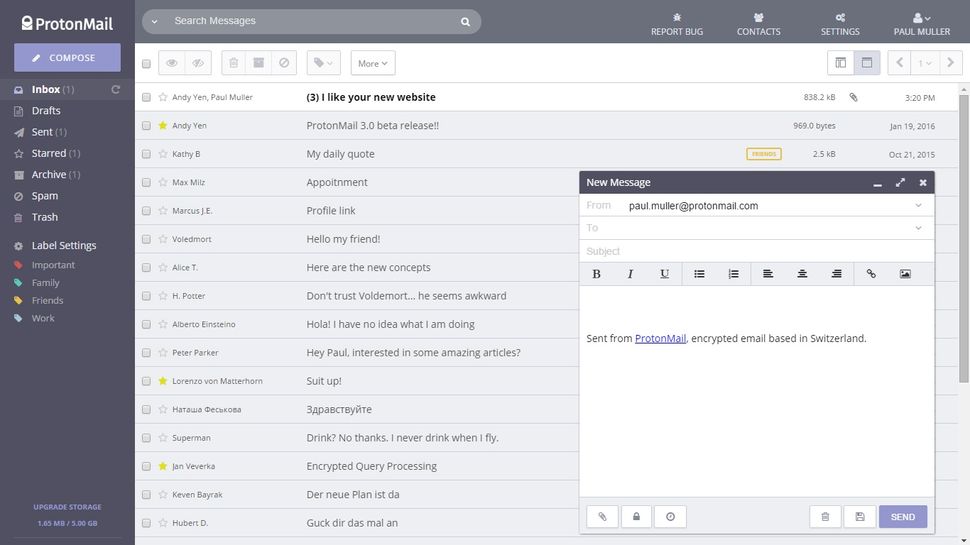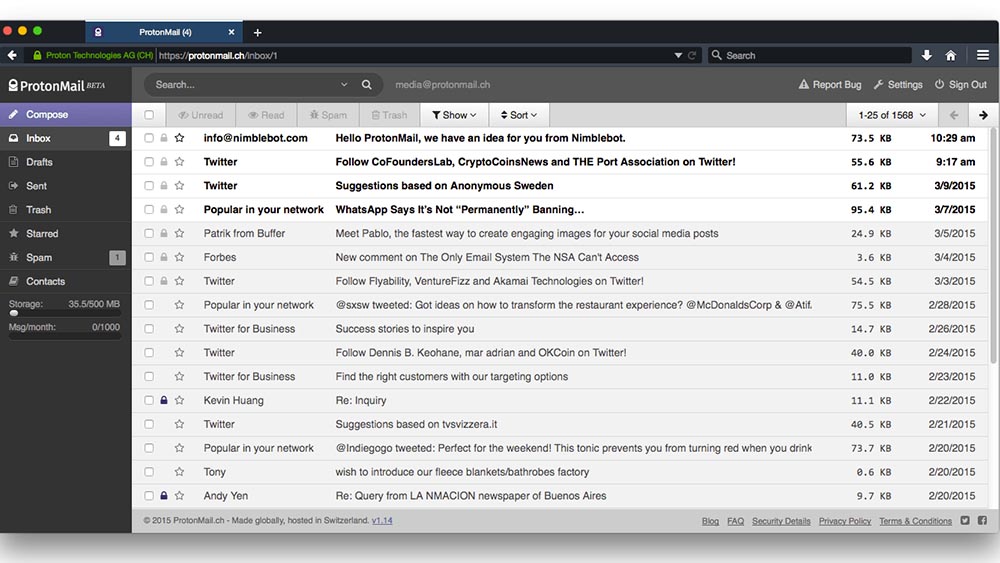
You may remember hearing that Gmail always uses a secure HTTPS connection. Both products come from the same company, Proton Technologies, and you can save money with a subscription that bundles both products. If the ProtonMail name sounds familiar, you're probably thinking of ProtonVPN, a top VPN service that's strongly focused on physical security. PreVeil and Skiff are our Editors' Choice email encryption services. That said, PreVeil gives you equally powerful encryption at no cost, and Skiff, also free, adds encrypted collaboration and file sharing. When you communicate with other ProtonMail users, you get end-to-end encryption. ProtonMail stores your data using zero-access encryption, which means nobody but you can access it-neither a dishonest employee nor a lawyer brandishing a subpoena. You can use ProtonMail at no cost or pay a fee to remove the free edition’s limits and enable more features. If that sounds creepy to you, consider switching to an encrypted email provider that puts your security first, like ProtonMail. Just because you don’t get a bill for your webmail account doesn’t mean it’s free: You pay by allowing the provider to mine your messaging for data that helps target ads (among other things). How to Set Up Two-Factor Authentication.


That doesn’t give me any meaningful information as to what “abuse” allegedly occurred. The customer service agent gave me a vague answer that their anti abuse system automatically “flagged” the account. I was shocked to read this and naturally appealed it. All was good until one day proton mail decided to close my account for a suspected “privacy violation”. Proton mail seemed promising with their claim to being a “private, secure and encrypted email service” - a perfect match so I thought. I switched to proton mail from one of the larger email providers precisely to avoid snooping by those companies. Let me preface by saying that I had high hopes for proton mail initially.


 0 kommentar(er)
0 kommentar(er)
